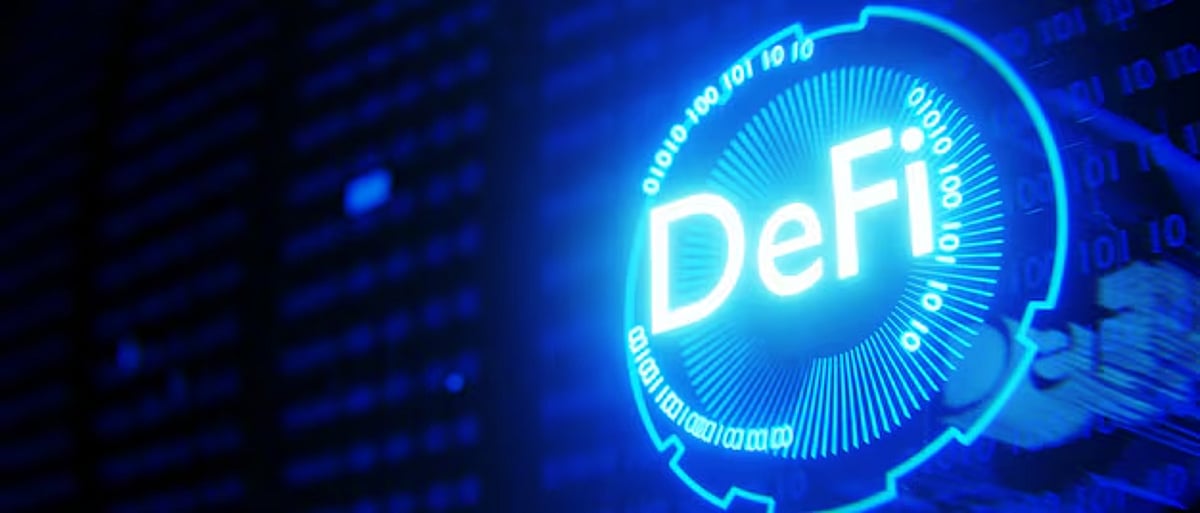DeFi Explained: How Decentralised Finance is Revolutionising Lending & Borrowing in Ireland and Beyond

Understanding DeFi: A New Era for Irish Borrowers and Lenders
Decentralised Finance (DeFi) is rapidly changing the landscape of financial services, and Ireland is no exception. But what exactly is DeFi, and how is it disrupting traditional lending and borrowing? This article breaks down the core concepts, explores the potential benefits, and considers the challenges of this emerging technology.
What is Decentralised Finance?
At its heart, DeFi leverages blockchain technology – the same technology underpinning cryptocurrencies like Bitcoin and Ethereum – to provide financial services without the need for traditional intermediaries like banks, brokers, or centralised exchanges. Think of it as a financial system built on open-source code, accessible to anyone with an internet connection. Instead of relying on a single institution, DeFi relies on smart contracts – self-executing agreements written into the blockchain – to automate and enforce financial transactions.
How Does it Work?
Here's a simplified look at how DeFi lending and borrowing typically works:
- Connecting to a DeFi Platform: Users connect their cryptocurrency wallets to a DeFi platform (e.g., Aave, Compound).
- Providing Liquidity: Lenders deposit their cryptocurrency into liquidity pools. These pools are essentially shared funds that borrowers can draw from.
- Borrowing Assets: Borrowers can take out loans by providing collateral – usually other cryptocurrencies – to secure the loan.
- Smart Contracts Automate Everything: Smart contracts automatically manage interest rates, collateralisation ratios, and loan repayments, eliminating the need for manual intervention.
The Benefits of DeFi for Ireland
DeFi offers several potential advantages for both borrowers and lenders in Ireland:
- Increased Accessibility: DeFi can provide financial services to those who are underserved by traditional banking systems, including individuals with limited credit history or those living in rural areas.
- Higher Interest Rates for Lenders: DeFi platforms often offer significantly higher interest rates than traditional savings accounts.
- Lower Borrowing Costs: For borrowers, DeFi can sometimes offer more competitive interest rates, especially for short-term loans.
- Transparency and Security: Blockchain technology provides a transparent and immutable record of all transactions, enhancing security and reducing the risk of fraud.
- Global Market Access: DeFi connects you to a global pool of lenders and borrowers, expanding your financial opportunities.
Challenges and Risks
While the potential of DeFi is exciting, it's important to acknowledge the risks:
- Smart Contract Vulnerabilities: Smart contracts are code, and code can have bugs. Exploits of smart contracts have resulted in significant financial losses.
- Volatility: Cryptocurrency markets are notoriously volatile, which can impact the value of collateral and loans.
- Regulatory Uncertainty: The regulatory landscape surrounding DeFi is still evolving, which creates uncertainty for users and platforms.
- Complexity: DeFi can be complex to understand, and users need to be cautious and do their research before participating.
- Security Risks: Protecting your cryptocurrency wallet and private keys is crucial to avoid theft.
The Future of DeFi in Ireland
DeFi is still in its early stages, but it has the potential to fundamentally reshape the financial system in Ireland and worldwide. As the technology matures and regulations become clearer, we can expect to see wider adoption and innovation in the DeFi space. However, it’s vital for Irish consumers to approach DeFi with caution, understanding both the opportunities and the risks involved. Further education and awareness are key to navigating this new frontier in finance.




